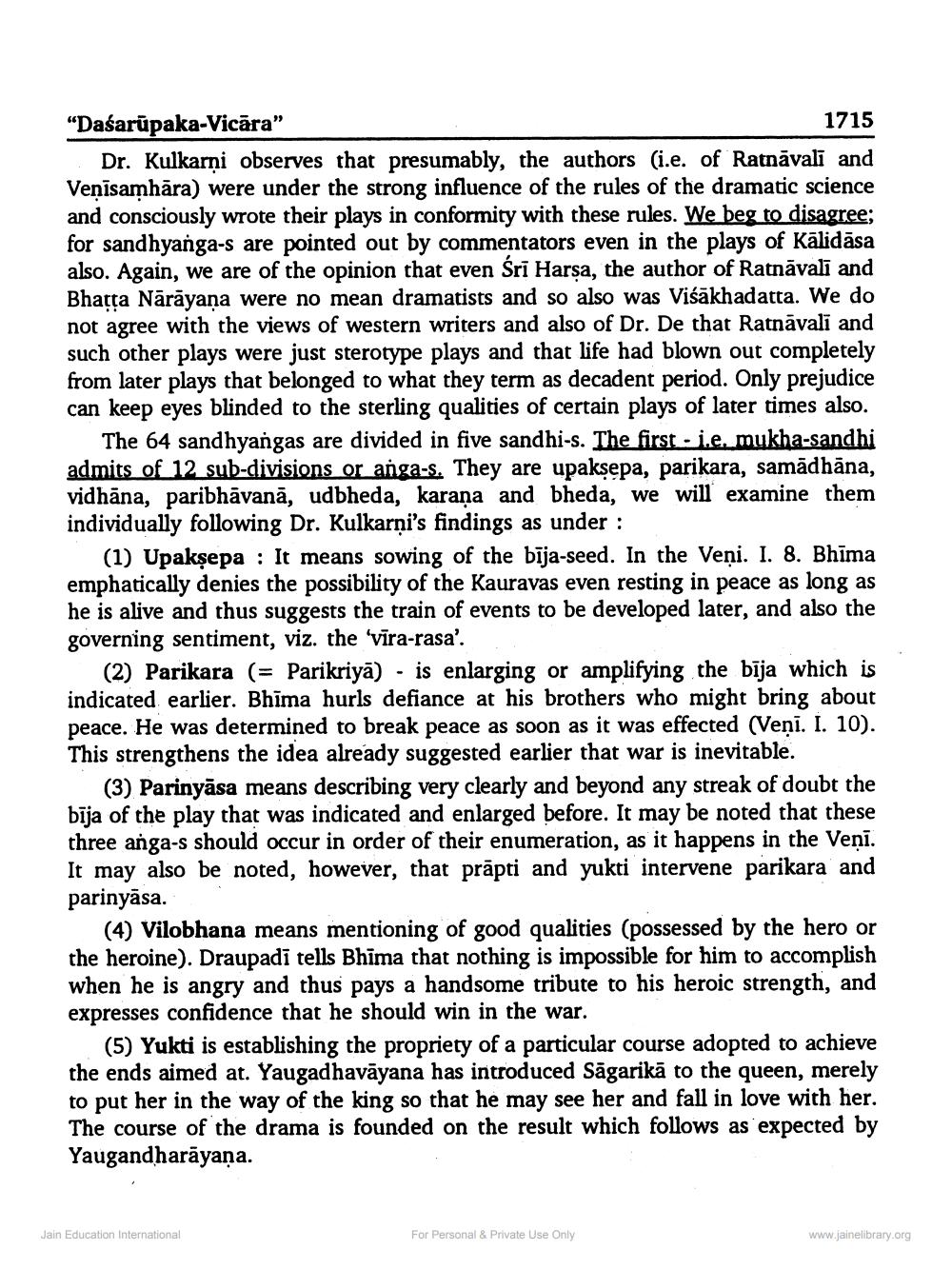________________
“Dasarūpaka-Vicāra"
1715 Ikarni observes that presumably, the authors (i.e. of Ratnāvali and Venīsamhāra) were under the strong influence of the rules of the dramatic science and consciously wrote their plays in conformity with these rules. We beg to disagree; for sandhyanga-s are pointed out by commentators even in the plays of Kālidāsa also. Again, we are of the opinion that even Sri Harsa, the author of Ratnāvalī and Bhasta Nārāyana were no mean dramatists and so also was Viśākhadatta. We do not agree with the views of western writers and also of Dr. De that Ratnāvali and such other plays were just sterotype plays and that life had blown out completely from later plays that belonged to what they term as decadent period. Only prejudice can keep eyes blinded to the sterling qualities of certain plays of later times also.
The 64 sandhyangas are divided in five sandhi-s. The first - i.e. mukha-sandhi admits of 12 sub-divisions or anga-s. They are upaksepa, parikara, samādhāna, vidhāna, paribhāvanā, udbheda, karana and bheda, we will examine them individually following Dr. Kulkarni's findings as under :
(1) Upaksepa : It means sowing of the bīja-seed. In the Veni. I. 8. Bhīma emphatically denies the possibility of the Kauravas even resting in peace as long as he is alive and thus suggests the train of events to be developed later, and also the governing sentiment, viz. the 'vīra-rasa'.
(2) Parikara (= Parikriyā) - is enlarging or amplifying the bīja which is indicated earlier. Bhīma hurls defiance at his brothers who might bring about peace. He was determined to break peace as soon as it was effected (Veni. I. 10). This strengthens the idea already suggested earlier that war is inevitable. (3) Parinyāsa means describing very clearly and beyond any streak of doubt the
e play that was indicated and enlarged before. It may be noted that these three anga-s should occur in order of their enumeration, as it happens in the Venī. It may also be noted, however, that prāpti and yukti intervene parikara and parinyāsa.
(4) Vilobhana means mentioning of good qualities (possessed by the hero or the heroine). Draupadi tells Bhima that nothing is impossible for him to accomplish when he is angry and thus pays a handsome tribute to his heroic strength, and expresses confidence that he should win in the war.
(5) Yukti is establishing the propriety of a particular course adopted to achieve the ends aimed at. Yaugadhavāyana has introduced Sāgarikā to the queen, merely to put her in the way of the king so that he may see her and fall in love with her. The course of the drama is founded on the result which follows as expected by Yaugandharāyaṇa.
Jain Education International
For Personal & Private Use Only
www.jainelibrary.org




